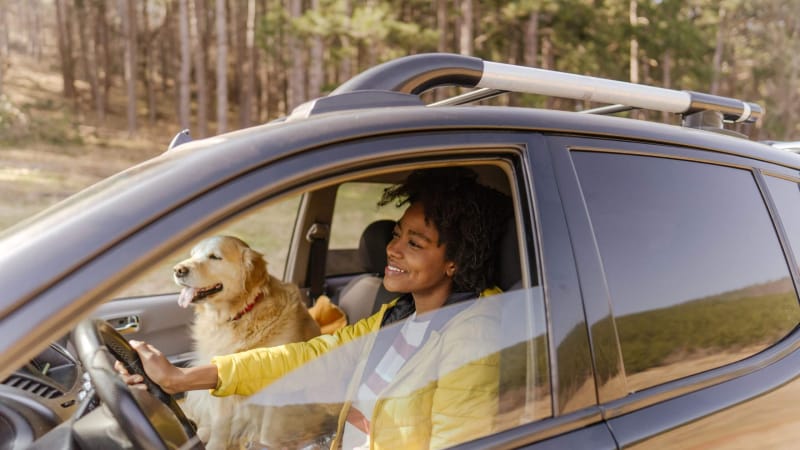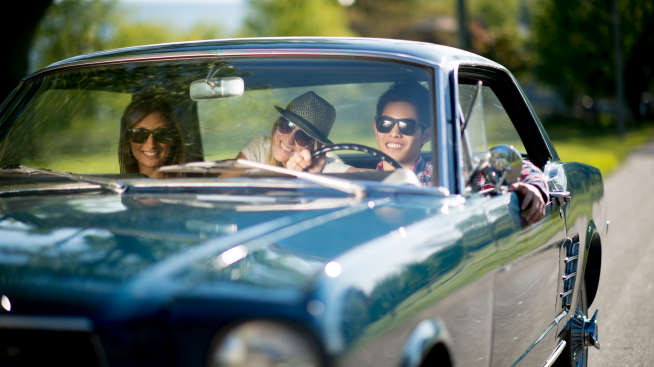What are the best used cars to buy?

What kind of car should I buy? And should it be new or used? These are the two questions almost every prospective car buyer asks when shopping for a car. And more often than you may think, people land on buying used.
In reality, you don’t have to buy new to get what you’re looking for, and the best used car to buy will vary depending on your price point, lifestyle and the length of time you’ll be using the vehicle. This article will help identify what to look for to find the best used car to buy based on your unique needs.
What to look for when buying a used car
There are several helpful steps you can take when buying a good used car. For starters, you’ll want to make sure you’re buying a safe vehicle from a reliable source. You’ll also want to find something that is in your price range and fits your lifestyle needs. Once you’ve found a car that fits your needs, here are a few things you can do:
- Get a feel for how the car runs — make sure you get to test drive it.
- Look out for any leaks or strange noises as it runs. These could be signs of damage that should be repaired before purchasing.
- Inquire about any prior aesthetic or structural issues.
- Do market research on the make and model.
- Make sure the price is fair for what you’re getting.
- Take the car for an inspection if you have time before buying.
- See if it’s a certified pre-owned vehicle — these cars are typically held to a higher standard than uncertified used vehicles.
- Check out the car’s vehicle history report for more details.
After properly vetting the vehicle, you can move forward in your used car buying journey!
What to know about used car shopping
Pros of buying a used car
Although buying used is different than buying new or leasing, there are some benefits to consider. Buying a used car usually comes with lower expenses upfront. You can buy a used car that’s still a relatively new make or model without having to pay as much to acquire it.
Insurance premiums are usually lower with used vehicles too, depending on your driving history and location. Additionally, when negotiating with the dealer or previous owner, there’s more room to negotiate with a used vehicle if you are on top of market trends and find any issues with the car during a test drive or inspection.
Cons of buying a used car
A common con with buying used is that the car is usually out of warranty. New cars come with a couple of years of protection that can help cover some repairs, whereas used cars could involve more out of pocket expenses. If warranty length is a priority, certified pre-owned vehicles usually come with longer warranties than other types of used cars.
If you purchase an older model with high mileage, that may mean issues that could be costly down the road. Your upfront costs may be small, but down the line you may face higher maintenance and repair costs based on the car's age and miles driven.
Older models typically don’t have advanced technological capabilities that you may be looking for when upgrading your vehicle. If you value using Bluetooth to make calls or play music, a good sound system, navigation features or any other more modern car capability, the vehicle’s technology is something to seriously consider.
Used cars to buy for families
If you’re shopping for a family, an SUV or a minivan may be a better option. SUVs and minivans can carry anywhere from five to nine people and have plenty of storage options. If you need a place to put snacks, games and other kid friendly items, an SUV might be your best bet. They’re good for shorter distances, like errands around the neighborhood or carpools for your children and their friends.
Used cars for travelers
When it comes to traveling, you’ll want to prioritize the distance you’ll be traveling, your overall budget for the trip including the vehicle and its expenses, and which safety features are available. Other things to consider when picking your road trip vehicle are:
- Will I be driving long distances or short distances?
- What is my budget?
- How many seats do I want?
- Do I care about aesthetics?
- What safety features are important to me?
- What technological features are important to me?
- What climate and terrain will I be driving in?
- Do I need this vehicle for a long period of time?
Used car financing options
Once you’ve landed on your ideal vehicle, it’s time to make a purchase. If you’re looking for used car financing options, there are plenty to choose from. You can shop around at a bank, auto lender or dealer to prequalify and apply for financing. The interest rate and terms of your loan will depend on your credit history and various other criteria, depending on your lender.
When you take out a car loan, you make monthly payments to your principal and interest over time. Auto loans typically span a duration of 36 to 72 months. Your monthly payment will depend on the amount of your loan, your interest rate, and the length of your loan.
If you’re looking at a 36-month loan you’re likely paying a higher payment per month but saving on interest. If you’re looking at a 72-month loan you’re looking at lower monthly payments but more going towards interest.
The bottom line
Buying a used car can be an exciting venture and the “best” used car isn’t one size fits all. You can make your auto dream come true using your own capital or financing in the form of an auto loan from a trusted lender.



